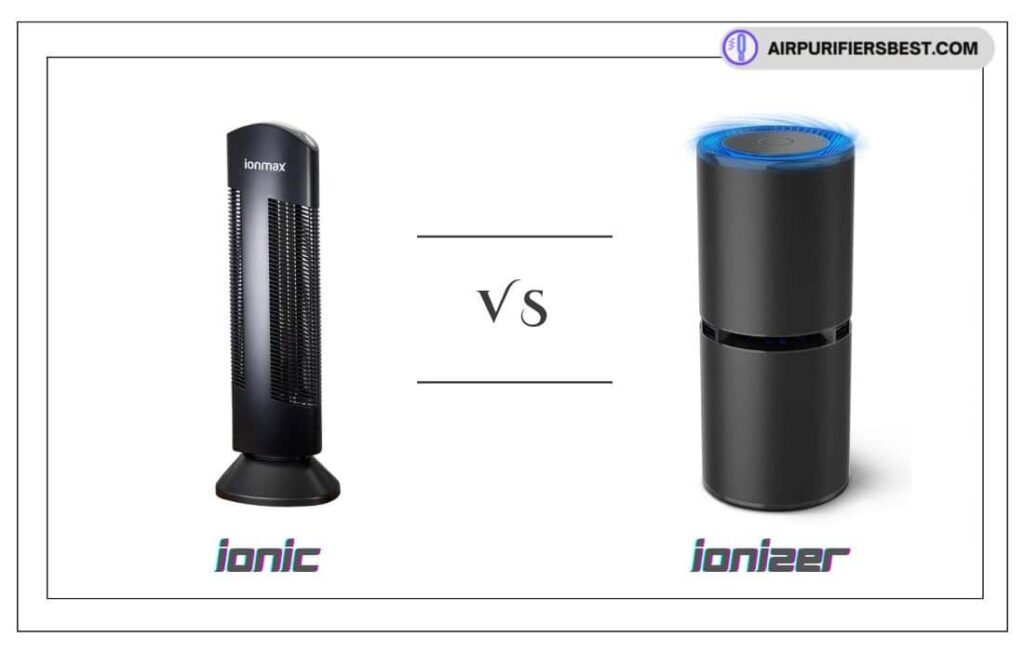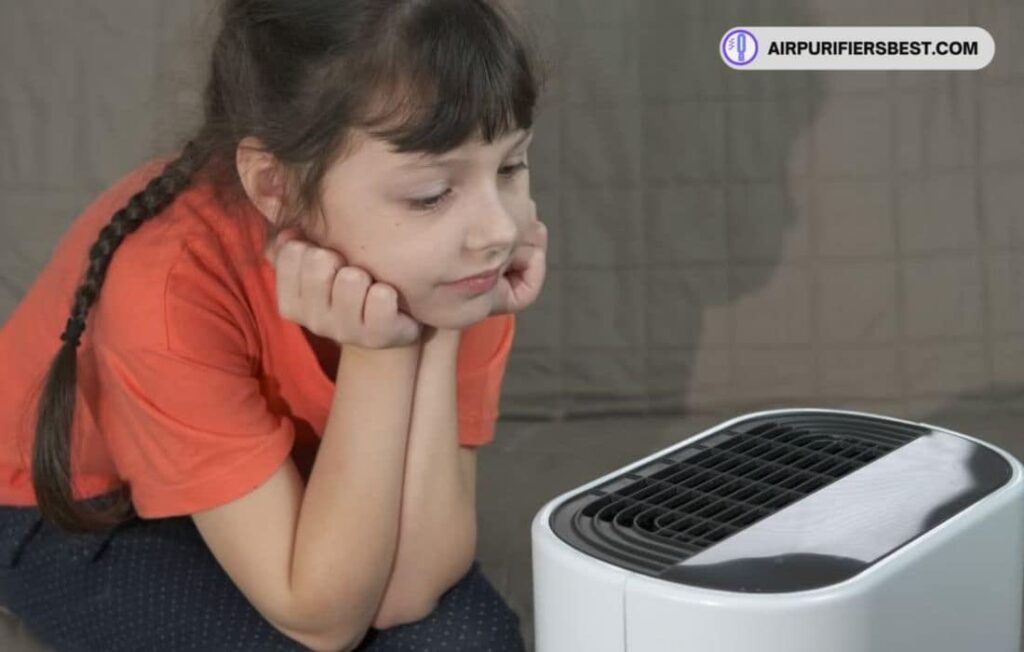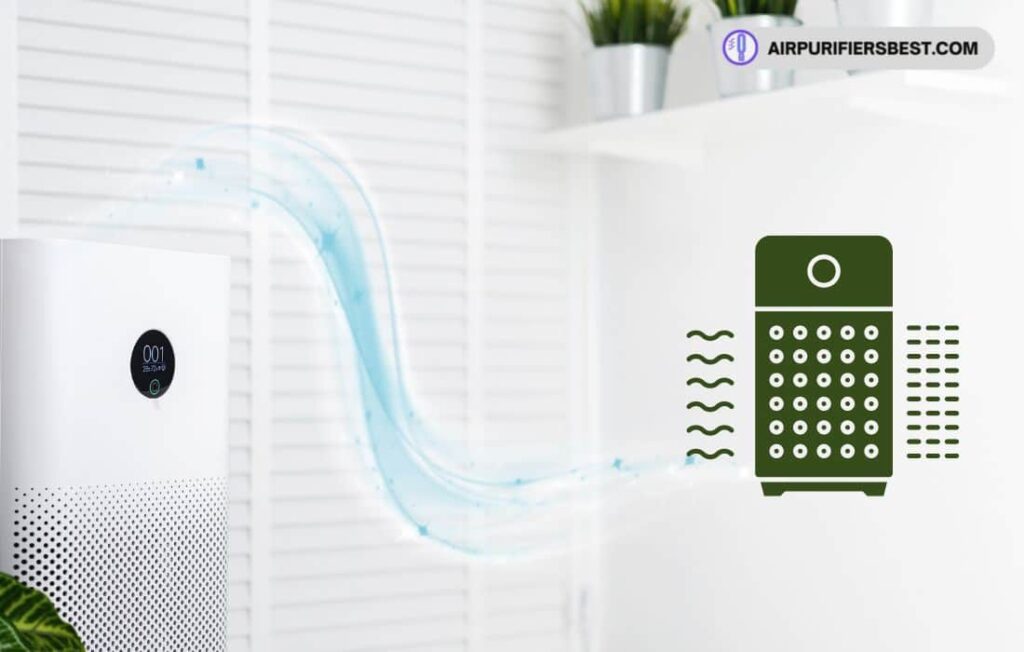The air ionizer or ionic air purifier is a device that emits a large number of negative ions to free the air from pollution particles that are positively charged. There is also an ionizer with a filtration system. With these, the pollution remains trapped in the different layers of filters, including the HEPA filter. Ionic Air Purifier With so many air purification technologies to choose from, it’s important to understand which features differentiate ionizer air purifiers from other air purifier products. Ion generators are generally fan-based. Ion generators are usually filterless. Ion generators tend to be more low maintenance than other air purifiers.
Ionizer purifier:
Ionizers are also called “ionizer air purifiers,” “ionizing air purifiers,” “air ionizers,” “ion generators,” and “ionic air purifiers.” Additionally, there are air purifiers called “electrostatic air purifiers” or “electrostatic precipitators,” which work similarly to ionizers (we will explain these differences when relevant). For simplicity, we will refer to all these ionizing air purifiers as “ionizers.”
Ionizers use high voltage to give an electrical charge (usually negative) to either a particle that moves through the ionizer or to molecules in the air. These charged molecules are called ions, and the ions will then stick to particles. In either case, the result is particles with an electrical charge.
Ionic air purifier:
Ionic air cleaners emit a steady stream of negative ions into the air. These negative ions attach to airborne molecules, making them negatively charged and attracted to nearby positively charged particles. Air ionization is one of the most sophisticated technologies for removing viruses, bacteria, mold, allergens, volatile organic compounds (VOCs), odors, and more. All ionic air purifiers (also called air ionizers) work by emitting ions that interact with and deactivate contaminants. Research suggests that ionization offers numerous benefits, including improved psychological health, productivity, and well.
What is an ionic air purifier?
An air convector refines the air in a room by galvanically charging air molecules. Many air purifiers use fans and filters to remove impurities from the air.
Air ionizers use ions to remove coarse-grained bacteria and odors from the air. Air ionizers rely on the chemical properties of ions. An ion is a negatively or positively charged particle. What does an ionizer do? Air ionizers create negative ions using electricity and then discharge them into the air. These negative ions attach to positively charged particles in the room, such as dust, bacteria, pollen, smoke, and other allergens. The positively charged particles and negative ions bond together to create dense dirt particles that cannot float in the air. These heavier dirt particles fall to the ground and wait to be swept up at a later time. Some particles might fall onto other surfaces in the room, such as television screens, computers, countertops, and sofas. Homeowners can easily clean these surfaces by dusting or wiping them off with a rag.
Ionizers make plenty of claims about how well they will clean the air in your room, prevent allergy symptoms, provide “freshness,” or eliminate odors. But what does an ionizer do? How does it remove particles from the air or improve the smell in a room? And do they improve your indoor air quality? We will examine what ionizing air purifiers do and their potential negative effects.
Pros:
- No Filters to Replace.
- Can Provide a Feeling of Well-Being.
- HEPA filters work using physical barriers that allow air to pass through but simultaneously collect tiny particles and remove them from them.
- In fact, this is also what is found in water filters! Using an ionic purifier then means that you can simply ‘set and forget your system and allow it to do its job.
- These purifiers are highly effective when it comes to removing odors in particular as well as pollutants from outside as small as .01 microns (that’s very small).
- This makes ionic purifiers a very good choice for city dwellers who may be concerned about the effect of pollution on their long-term health.
Cons:
- Only Temporarily Cleans the Ambient Air.
- Makes the Walls and the Surfaces Around the Air Ionizer Dusty.
- Ozone by-product.
- An ozone air purifier can be toxic if it builds up in the home, so you want to avoid these unless you have specific reasons to choose them.
- While all ionic purifiers will use a small amount of ozone, this is usually to a small enough degree that it won’t have any negative impact on your health.
So How Do Ionizer Purifiers Work?
Here’s my bedroom, with an ionizer purifier and harmful particles in the air. That ionizer purifier shoots out negative ions into the air. Those negative ions in the air cause the particles to stick to surfaces, like my bed, the wall, and the floor. That’s the principle behind ion generators. It’s hard to see it happening with these tiny negative ions, but you’ve seen it on a visible scale if you’ve seen someone rub a balloon on their hair and then stick it to a wall.
OK, so regular ionizers don’t work, but we can use a big one! The problem is that when you put that many ions into the air, it produces ozone. Ozone is harmful, so that’s not good!
Ionizers have been shown to increase dangerous small-particulate levels. This is due to chemical reactions the ionizer helps create in the air.
Pros:
- Inhibit viruses, bacteria, and mold species.
- Decrease stress
- Regulate sleeping patterns
- Increase immune function
- Support mood
- No need to replace filters.
- Effective in removing odors and outside pollutants as small as .01 microns.
Cons:
- Ineffective for asthma and allergies i.e
- Dust
- Dander
- Pollen
- Ineffective for odors and gases for reducing VOCs in the air.
- Emits ozone, and it’s also a lung irritant. Inhaling small amounts of ozone may cause short-term effects like:
- Throat irritation
- Chest pain
- Coughing
- Shortness of breath
- Difficulty breathing
- Ionizers create low levels of ozone
- Some ionizers can produce a foul smell
- Not effective in removing dander, pollen, dust, dirt, and other large particles
- It likely won’t neutralize all particles, especially those on surfaces
- Some ionizers (without collection plates) will leave dirty particles on your surfaces
Conclusion:
HEPA filters are particularly effective at removing odors as well as the smallest particles of dust and pollutants. Either way, you will enjoy the benefits of cleaner, fresher air. Whichever option you choose, you can’t go wrong with taking the step of ensuring your home and family’s health by providing clean, fresh air to breathe. After all, clean air affects every bit of our quality of life. For people who have a specific allergy, however, or who live out in the sticks where the smells are considerably more rural, then a HEPA purifier might be a better choice.
Always make sure to read reviews, consider efficiency ratings, and judge each model on its own merits though!
Thanks for reading!




